
FREE SHIPPING TO U.S. AND PUERTO RICO FOR ALL ORDERS $100 AND OVER!
We are unable to accept returns on any products or test kits. All sales are final.
By visiting our site, you agree to our privacy policy regarding cookies, tracking statistics, etc. Read more
FREE SHIPPING TO U.S. AND PUERTO RICO FOR ALL ORDERS $100 AND OVER!
We are unable to accept returns on any products or test kits. All sales are final.
FREE SHIPPING TO U.S. AND PUERTO RICO FOR ALL ORDERS $100 AND OVER!
We do not currently ship internationally.
We all forget things once in a while. How many times, for example, have you struggled to come up with the name of a recent acquaintance or forgotten where you put your car keys? These memory hiccups are common and merely constitute a by-product of your brain’s continuous striving to sort, file, and prioritize the incessant barrage of information it receives.
We used to think that such forgetfulness is a normal part of the aging process, and in general it is nothing to worry about. You may joke about having a “senior moment” every now and then, and it may take a bit longer to remember what you were looking for in the other room or the name of your neighbor’s grandson.
In the past, scientists and clinicians believed that these innocent memory lapses were associated with normal wear and tear on your brain and that normal aging is associated with loss of brain cells (neurons). Results of more recent research, however, strongly suggest that there may be very little nerve cell loss with normal aging. Moreover, early memory loss IS associated with loss of brain cells.
Our brain cells normally diminish by half percent a year as we get older, and with cognitive impairment and Alzheimer’s disease, the rate of atrophy speeds up. But the good news is cognitive impairment and Alzheimer’s disease is not a normal part of aging as opposed to what most people believe. Although the incidence of Alzheimer’s disease has increased in the recent years, the majority of elderly aged 65 years and above still have good mental health. The implication of this is that we can do something to prevent many forms of cognitive impairment.
For this reason, it is more important than ever to identify and aggressively address signs and symptoms of early memory loss. Furthermore, in addition to screening for early memory loss, we must proactively promote the health of nerve cells and optimize neurotransmitter and hormonal balance before you begin to experience memory and other cognitive decline.
Moreover, often, what appears to be significant loss of memory is actually treatable, even reversible, and brain cell growth and learning can take place at any age. Believe it or not, maintaining healthy brain function into the later years is in large part under your own control.
With the understanding that different nerve pathways and different locations of the brain are involved with the processing and storage of memory, it stands to reason that there are many different factors which can precipitate memory loss. The following list describes some of the many issues which are causes of memory loss:
Fortunately, many types of memory loss can be prevented or reversed. With an eye to your long-term health and quality of life, there are several preemptive steps you can take to improve and enhance your memory.
Here at Integrative Psychiatry, we are, after all, brain doctors. Our focus on the brain is easy to understand. Your brain is not only your life’s master of ceremonies coordinating all of the intricate physical, emotional, cognitive, social, and interpersonal functions necessary to survive and thrive. It is indeed also the enduring repository of your memories and experiences, hopes and aspirations. Simply put, your brain is the cradle of your identity and the seat of your soul. Take good care of it.
The following recommendations are derived from the most recently published peer-reviewed scientific research. They are appropriate no matter what your overarching goals are:
In the most general terms, we try to accomplish these goals as follows:
Because no prescription medications have ever been shown to protect the brain, prevent memory loss and cognitive decline, or modify the disease course of Alzheimer’s and other neuro-degenerative disorders, the cornerstones of our Therapeutic Brain System to accomplish these vital goals are lifestyle and nutraceuticals.
Think of supplements and nutraceuticals not as alternatives to medications, but rather complements to diet and lifestyle. Those we emphasize based on rationale and data include the following:
This list of potentially beneficial nutraceutical ingredients boggles the mind. To simplify things and prevent “pill fatigue,” we have formulated and incorporated products that combine as many of these key ingredients as possible.
Please click on the following link to learn more about our Core Cognitive Cocktail.
If I could only choose one of the nutraceuticals that make up our Core Cognitive Cocktail, it would have to be our best-selling FolaNAC. I will elaborate in the next few sections.
I mentioned previously that early memory loss is associated with loss of brain cells (neurons). At some point, this loss crosses over from everyday annoying forgetfulness to clinically significant symptoms. In the past, scientists and we clinicians believed, in contrast, that normal aging is associated with similar loss of neurons, just at a slower rate. Results of more recent research, however, strongly suggest that there may be very little nerve cell loss with normal aging.
Think about the far reaching ramifications of this new data. Two in particular stand out:
To this end, we have been developing better ways of assessing your risk for the most aggressive form of memory loss: Alzheimer’s disease (AD). One of the best predictors of your future risk for this dreaded form of dementia is whether or not you have elevated levels of homocysteine in your blood. This condition is called hyperhomocysteinemia (HHcy), and is a common condition with estimates of prevalence ranging from 5% to 29% in individuals over 65. Accumulating data demonstrates a relationship between elevated homocysteine and neurodegenerative diseases including cognitive disorders and dementia, conditions associated with chronic inflammation and oxidative stress. Past research has found that with an elevated homocysteine level, you’re twice as likely to become demented, twice as likely to have a heart attack, twice as likely to have a stroke, and ten times more likely to experience brain atrophy.
For example, the Framingham Study, one of the most well-known and informative studies on the prevalence of diseases (epidemiology), demonstrated that plasma homocysteine level is a strong predictor of future Alzheimer’s disease. In fact, for every 5 units increase in homocysteine, the risk of AD was increased by 40%. Moreover, plasma homocysteine concentrations > 14 μmol/L nearly doubled the risk of AD.
Their finding led investigators in this study to conclude that plasma homocysteine (Hcy) is a strong, independent risk factor for the development of dementia in general, or specifically, AD. Not only that, in persons who already have Alzheimer’s, increased Hcy levels in the brain may accelerate the progression of the disease.
Another set of studies has found that these elevations of homocysteine are associated with low levels of folate in the central nervous system. As such, early intervention with a certain type of folate supplementation will help prevent the age-related increase in homocysteine.
One quick cautionary note. You may be fortunate enough to have a savvy primary care clinician who is familiar with this data. He or she may even have been proactive enough to measure folate levels in your blood. If so, and your level came back normal, be aware that brain levels of folate do not correlate to serum folate levels. In fact, a study by Serot, et al, found that people with AD often have normal serum folate levels despite very low CNS (central nervous system) folate levels. So, if your homocysteine levels are high, even if your serum folate levels are normal, you still need treatment with folate supplementation.
In addition, several other studies linking low folate levels to high homocysteine levels concluded the following:
Yet another study found that folate supplementation for 3 years significantly improved 5 domains of cognitive function (memory, sensorimotor speed, information processing, complex speed, global cognitive function – some to the level of performance of an individual 7 years younger) that tend to decline with age.
Good question. It turns out that elevated plasma homocysteine is also an important bio-marker for low vitamin B12 levels. The story on B12 is particularly interesting. For example, studies have shown that there is a direct relationship between serum B12 and serum folate such that optimum levels of both vitamins are necessary to protect you from cognitive decline. More specifically, low B12 and normal or even high folate levels do not protect against memory loss. Hence, the need to ensure normal B12 levels when supplementing with folate. It is for this reason that in our best-selling memory supplement – FolaNAC – we have combined both of these crucial vitamins.
It has historically been believed that vitamin B12 had to be given via shots. The more recent data, however, is very reassuring: oral cobalamin is as effective and possibly superior to parenteral (IV or IM) therapy.
The net effect of this dynamic duo is to ensure that you are able to continue to make that neurotransmitter most closely aligned with memory and cognition: acetylcholine.
As you might suspect, in the earliest stages of memory loss, you have an imbalance in your acetylcholine activity that results in increased need for new synthesis of this all-important brain chemical. New acetylcholine is formed through a series of chemical reactions first initiated by L-methyfolate (the type of folate that your brain can utilize) along with methyl-B12 and, in the process, reduces your elevated homocysteine levels.
A logical question arises: how exactly does elevated homocysteine cause memory loss and brain deterioration? The answer to this question is obviously complex, but several possible mechanisms have been identified:
Because of the havoc elevated homocysteine levels can wreak, in addition to combining L-methylfolate and B12, we have added a powerful anti-oxidant and NMDA receptor stabilizer, namely, n-acetyl-cysteine (NAC), to FolaNAC. NAC is one of the most widely studied and used supplements in the field of integrative psychiatry because of its potential effectiveness and its proven safety and tolerability.
In addition to its potent antioxidant properties, NAC lowers homocysteine and prevents nerve cell death.
Not all folate is created equal. There is a good chance, particularly if you already have early memory loss (or depression for that matter), that the dietary folate you get from green leafy vegetables (you have to eat them first) and the synthetic folic acid that pollutes your multi-vitamin or your B complex, cannot get from your gut/blood past your blood-brain-barrier and into your brain. If it can’t, it won’t reduce your brain homocysteine levels and won’t protect you from cognitive decline.
It is imperative that you take folate in the L-methylfolate form that readily crosses from your systemic circulation into your brain.
A new study published in the Journal of Alzheimer’s Disease evaluated the effect of a medical food, Cerefolin/CerefolinNAC (CFLN), in patients with HHcy and Alzheimer’s disease or cognitive impairment due to cerebrovascular disease. An earlier study by the same group of researchers demonstrated significantly slower cognitive decline in patients with Alzheimer’s disease and related disorders (ADRD) who were treated for HHcy with CFLN compared to those without HHcy who did not receive CFLN. In that study, slower cognitive decline was observed in learning and memory, constructional praxis, and visual-spatial executive function, and was more significant in patients with milder baseline severity and who were treated with CFLN for at least a year.
I find it ironic how powerfully the organ cartels – heart, lung, endo, kidney, etc. – preach the good word on end-organ protection. For my money, however, the most precious organ is the brain. Protect it at all cost. For when it is gone, you and I are gone. So, you guessed it: I take my FolaNAC…Every Day.
Showing 1–24 of 79 results
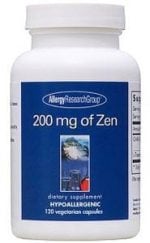
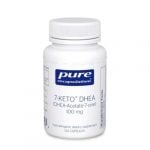
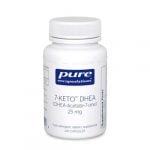
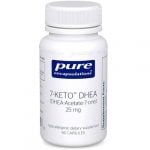
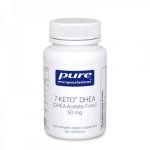
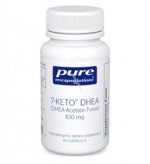
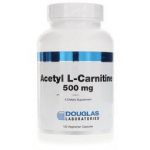
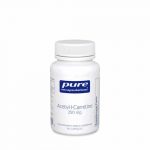
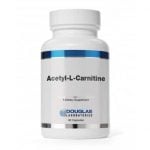
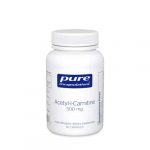


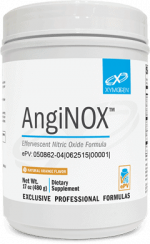
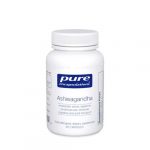
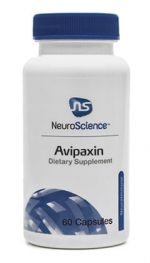
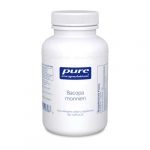
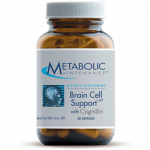
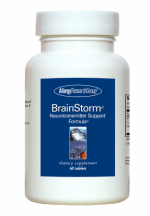
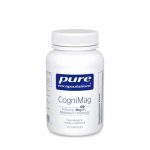

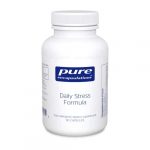

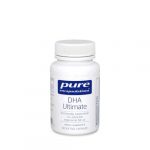
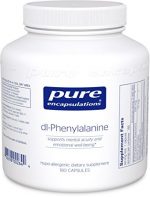
This site is protected by reCAPTCHA and the Google Privacy Policy and Terms of Service apply.